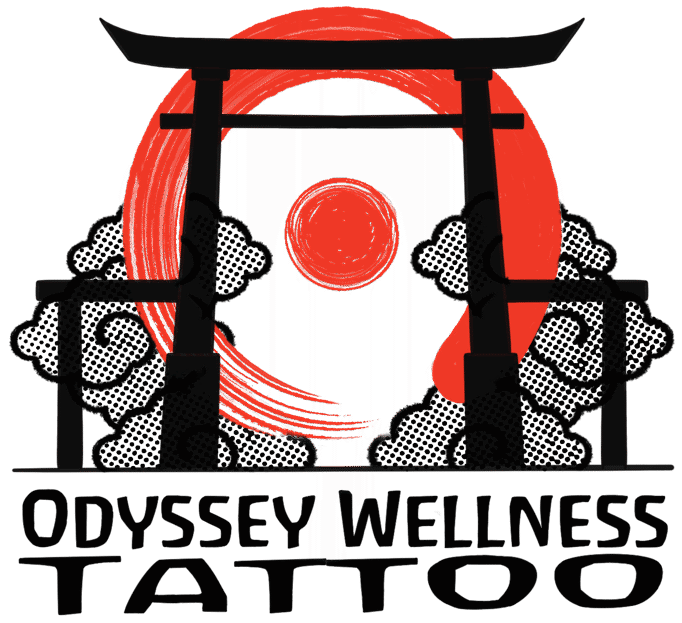Understanding Body Dysmorphia, Body Dysphoria, and Their Link to OCD
When thinking and talking about my job and what I do it is generally assumed that every service is a success and that all clients are led towards some kind of light concerning their appearance or their particular body issue that they have taken steps to overcome.
Unfortunately there is no way to help absolutely everyone. Certain preexisting conditions can dramatically interfere with a person’s progress concerning their particular dysmorphia or dysphoria issue.
When OCD and Body Dysmorphia/Dysphoria Converge
Obsessive Compulsive Disorder (OCD) can intersect with body dysmorphia and dysphoria in a complex web of psychological distress, especially when combined with scarring. This convergence can significantly impact individuals, leading to a cycle of negative behaviors and self talk that can heighten distress and be very challenging to navigate for any care giver.
I say “care-giver” because in these situations we tattoo artists are not just artists doing what we do but also the person selected to lead our client through the process of handling their scar tissue. Thereby being assigned the role of care-giver.
As a practitioner of such tattoo techniques I walk into every situation expecting success and for my client to leave my office in a better mental space than they arrived in. This is truly not alway realistic. It’s a hard truth to face but there are actually many people who won’t be happy with themselves or what I do no matter how many sessions of tattooing they receive.
An Unfortunate Experience
One such client of mine came to me with a scar from a minor surgery that was the result of a cyst removal. The actual removal process posed some unseen challenges resulting in a much larger scar than expected. The existence of this scar was unacceptable to my client which was why he wanted to cover it with a tattoo. I was unfamiliar with the signs of potential OCD issues at the time and had no personal experience with it.
Generally speaking his perception of what was possible and what he wanted to happen with his scar didn’t line up with what I prepared him to expect. My process with him was long and sometimes a bit frustrating because he wasn’t able to take my professional advice. I wasn’t aware that he was ill. I just thought he was being young and stubborn.
In actuality the reality was that mentally he was dealing with some severe body dysmorphia issues as the result of his particular form of OCD in relation to his very visible scar.
He came back to see me every other month to have more work done to cover this now imperceptible scarring on his arm. I finally had to tell him that there wasn’t really anything more I could do for him. I told him his tattoo was done and that I couldn’t, in good consciousness, keep working on it and to let me know if he had any other tattoo projects in the future and to please keep me in mind for any other scar camouflage or covering services he may need.
I had said these things to him before but this time I thought I had succeeded in helping him understand that his tattoo was really done. I encouraged him to live with it as it was and that the scar was not visible to the eye. That the only one who knew it was there was him.
I didn’t know that for an individual with OCD scars and perceived imperfections are reminders of past trauma and typically lead to intense scrutiny, rumination, negative self-perception and compulsive behaviors. All these things were true for my client. Our relationship was such that I expected to hear from him every eight to twelve weeks or so explaining that he still needed more work done on his tattoo because he could still see the scar.
When that email didn’t show up in my inbox within our regular correspondence window I had hopes of him being satisfied with his tattoo at last.
It wasn’t too much time later that I became aware of a very sad email from my client’s mother explaining that her son had a very specific kind of OCD that made it impossible for him to live with his scarring and so he ended his life. He was 25.
Tattoo Artist as Caregiver
As a caregiver I’m not sure I could have done anything more than what I’d been doing but in thinking about the situation I definitely had regrets.
I wish I had been more patient. I wish I had been able to cover his scar. I wish I had been able to help him.
Generally stated we as tattoo artists or PMU artists are encouraged to avoid working with clients if they exhibit symptoms of OCD to avoid situations like this but sometimes those symptoms are not so obvious.
I suppose this post reads as a cautionary tale. It’s just an actual account of a day in the life of a tattooer who deals in scars.

